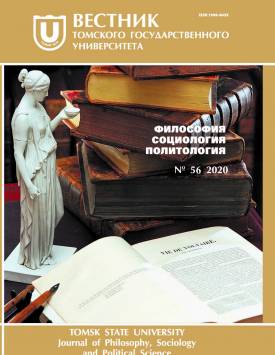Italy's Migration Policy as an Indicator of the Uncertainty of the Migration Issue in the EU
This article studies Italy's migration policy as an indicator of the degree of the regulation of the migration issue in the EU. Italy's current migration policy is a response to the lack of a consolidated EU migration's decision that would fit all member states. Each country tries to minimize the migration burden and shift it to other EU countries. Observing the inefficiency of the EU in the distribution of migrants, the countries most exposed to the migration burden (Greece, Italy, Hungary) criticized the EU's liberal migration policy and called for strict restrictive measures, independently resorting to the protection of their borders. The tightening of Italy's migration policy in recent years, the implementation by the Italian authorities of ultra-right election promises in response to the migration crisis, during which Italy alone had to deal with the influx of migrants, are links in one chain: protecting the interests of the national state opposes to European integration. By introducing non-standard measures to combat illegal migration, Italy has shown successful experience of an EU national state member's protection of its borders, national identity, and ethnic composition of the population in the face of European uncertainty on the migration issue. The geographical expansion of the EU to the East without an effective solution to inner problems, in particular migration, is impossible. Thus, Italy's migration policy has become an indicator of the unresolved migration issue within the EU. The protracted nature of the migration crisis is due to the ineffectiveness of the EU migration law (Dublin Agreements) in the distribution of refugees, the refusal of national states, in particular Italy, to comply with its provisions, the inability of the EU to protect external borders from the influx of migrants. Italy's tighter migration policy and attempts to resolve the migration issue with the help of national political and legal mechanisms that run counter to European freedoms and values indicate the EU's inability to resolve the refugee crisis with common efforts and indicate the strengthening of centrifugal trends in the EU.
Keywords
Европейский союз, Италия, беженцы, миграционная политика, European Union, Italy, refugees, migration policyAuthors
| Name | Organization | |
| Aslanov Stellas A. | Uzhgorod National University | stelas1969@gmail.com |
References

Italy's Migration Policy as an Indicator of the Uncertainty of the Migration Issue in the EU | Tomsk State University Journal of Philosophy, Sociology and Political Science. 2020. № 56. DOI: 10.17223/1998863X/56/21
